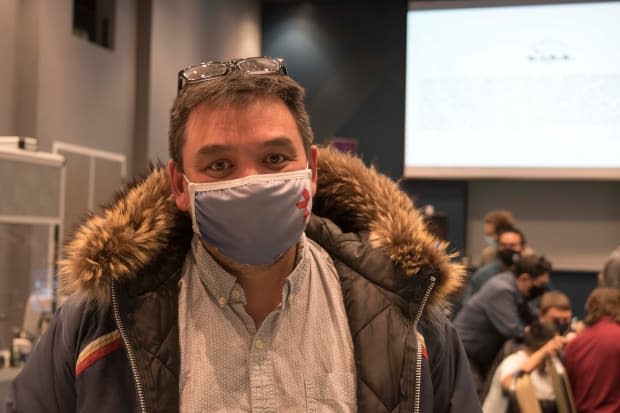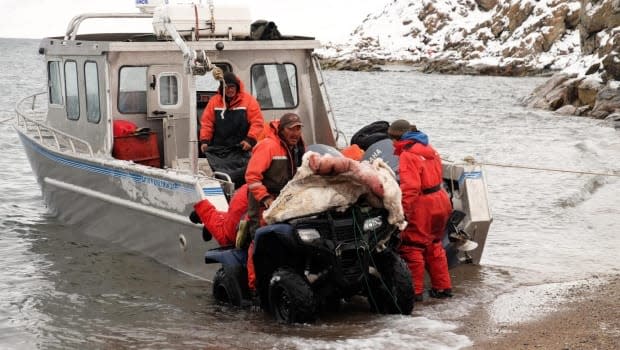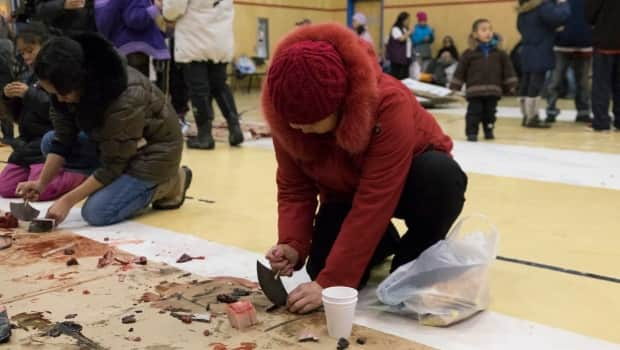'If not this, then what?' GN says Baffinland expansion is the best bet to boost economy

The government of Nunavut has painted a gloomy picture of the territory should Baffinland's Phase 2 expansion not proceed.
Baffinland is seeking approval to double its production at its Mary River iron ore mine south-west of Pond Inlet.
The Nunavut Impact Review Board was holding a final series of hearings last week in Iqaluit to consider the Phase 2 expansion proposal. But the hearings were suspended indefinitely on Wednesday following Iqaluit's first confirmed case of COVID-19.
Before the hearings wrapped up, Baffinland had its opportunity to question intervenors and fire back at criticisms it had previously received – it only got halfway through its five-hour allotment.
'These are jobs to provide the basics of life.'
While the mine's proposal has pitted economic benefit against environmental protections, Jimi Onalik, the government of Nunavut's deputy minister of economic development, said the expansion is about improving the quality of life for Nunavummiut.
"The challenge Nunavut faces is pretty stark when it comes to the economy. We have highest rates of unemployment. We have some of the highest rates of food insecurity," Onalik prefaced in a reply to a question from Baffinland's lawyer on whether the expansion fits into Nunavut's priorities.
"In addition to the people that are currently unemployed and who are currently unable to provide the necessities of life for their family, we're facing 10,000 young people across Nunavut becoming adults [in the next 10 years]. That's a very high number."
And while Onalik said the government has worked hard to bolster other sectors, like fishing and the arts, he said there's nothing that compares to the economic opportunities presented by Baffinland's expansion.
"If it doesn't proceed, then we have a really hard question: 'If not this, then what?' Onalik said.

He added, even if the Government of Nunavut — the largest employer in the territory — achieves targeted Inuit employment rates in the five affected North Baffin communities, there are only about 100-200 jobs where Inuit can replace non-Inuit, compared to the "1,000 or so" created with Baffinland's expanded mining operation.
In the next 10 years, said Onalik, there are 1,800 people becoming adults in the five affected communities of Pond Inlet, Arctic Bay, Clyde River, Sanirajak and Igloolik.
"I know this has been framed in some way about choosing jobs over the environment. And I truly want to say, the direction we've been given within the government of Nunavut is these jobs accomplish something," Onalik said.
"We have people who need food for their families. People aren't able to clothe their children. These are jobs to provide the basics of life. It's really about trying to find a way to improve the quality of life."
Increasing access to country food
Onalik also said creating jobs in communities can lead to an increase in the availability of country food.
He said communities have more disposable income with higher employment rates, thus making it easier to create community-based economic development.

"Those people who are working at the mines actually have the money and the ability to spend and hunt more. And it increases the amount of country food available in communities, either for sale or covering for the family's needs," Onalik said.
"It would involve a lot of work on the part of the government of Nunavut and others to make sure that every opportunity is pulled out of this project. It's not, an automatic 'yes' for the project means this is all going to happen. We all have a lot of work to do."

 Yahoo Movies
Yahoo Movies 